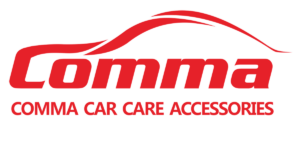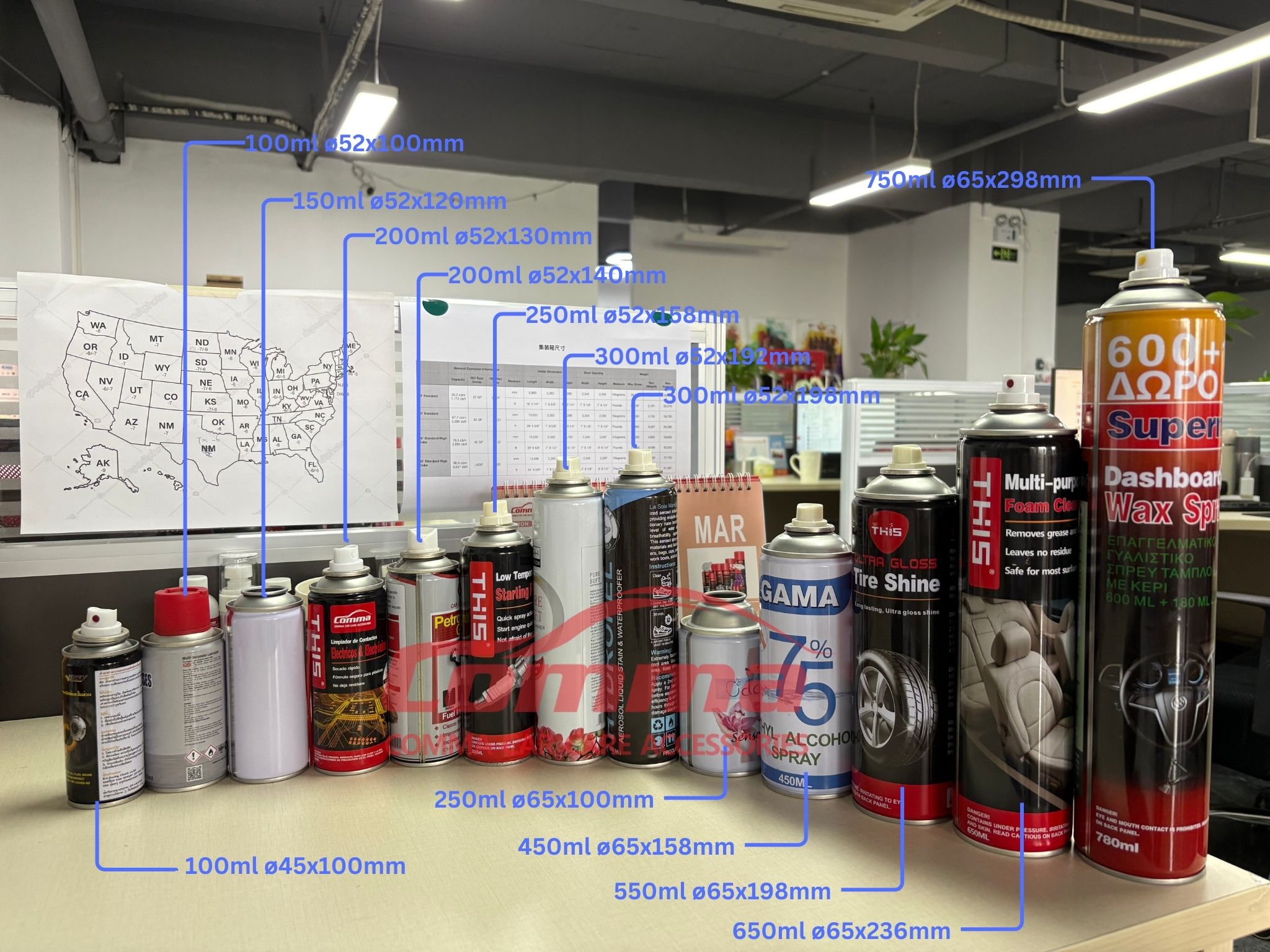Basic Knowledge of Aerosol Cans and Introduction to Our Company’s Commonly Used Specifications
I. Basic Structure of Aerosol Cans
Aerosol cans mainly consist of three parts: the can body, valve, and actuator (nozzle):
-
Can Body: Typically made of aluminum or tinplate, with good pressure resistance and sealing.
-
Valve: Controls the release of contents, with common diameters of 20mm and 25.4mm.
-
Actuator (Nozzle): Determines the spray pattern (e.g., mist, foam, stream).
II. Our Company’s Commonly Used Aerosol Can Specifications
We primarily use aerosol cans with diameters of 65mm, 52mm, and 45mm. Below is a detailed parameter comparison:
| Diameter | Common Height (mm) | Theoretical Capacity (mL) | Typical Filling Volume (mL) | Suitable Products |
|---|---|---|---|---|
| 45mm | 100–200 | 150–400 | 100–350 | Small sprays (perfume, pharmaceuticals) |
| 52mm | 100–265 | 250–600 | 200–500 | Household sprays (cleaners, insecticides) |
| 65mm | 100–300 | 400–1000 | 350–800 | Industrial use (paint, lubricants) |
Note:
Theoretical Capacity = Cylinder volume (πr²h), but the actual filling volume is typically 10%~20% less (reserved for compressed gas).
Filling Volume should be adjusted based on product characteristics (e.g., viscosity, pressure requirements).
III. Material Selection for Aerosol Cans
-
Aluminum Cans
-
Advantages: Lightweight, corrosion-resistant, recyclable, suitable for high-end products (e.g., cosmetics, pharmaceuticals).
-
Disadvantages: Higher cost, slightly lower pressure resistance than tinplate.
-
-
Tinplate Cans
-
Advantages: High strength, low cost, suitable for industrial products (e.g., paint, automotive care).
-
Disadvantages: Heavier, requires rust-proof treatment.
-
Recommendation:
-
45mm/52mm Cans: Prefer aluminum (e.g., perfumes, disinfectant sprays).
-
65mm Cans: Tinplate is more economical (e.g., spray paint, lubricants).
IV. Production and Filling Considerations for Aerosol Cans
-
Can Inspection: Ensure no deformation and proper seam sealing.
-
Valve Compatibility:
-
20mm valves: For small volumes (≤250mL).
-
25.4mm valves: For large volumes (≥300mL).
-
-
Filling Pressure:
-
General products: 0.6–0.8MPa.
-
High-pressure products (e.g., hairspray): 1.0–1.2MPa.
-
V. Industry Standards and Certifications
-
National Standard: GB/T 13042 (General Technical Requirements for Aerosol Cans).
-
International Standards: DOT (USA), ADR (Europe).
-
Certification Recommendations: FDA for cosmetics, MSDS for industrial products.
VI. Optimization Suggestions
-
Cost Reduction:
-
Bulk purchasing of 65mm tinplate cans (stable demand from industrial clients).
-
Thin-wall aluminum cans for 52mm (5%~10% weight reduction).
-
-
Value Addition:
-
Custom printing (brand logo, eco-labels).
-
Develop recyclable aluminum cans (aligned with green consumption trends).
-
For further testing or custom specifications, contact suppliers for samples!

